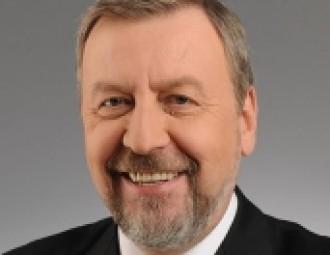Talks about visa facilitation is a bluff, Andrei Sannikau says

Following EaP Summit, ex-presidential candidate from Belarus, commented on talks about visa facilitation, voiced by Belarusian Foreign Minister in Vilnius.
Let us recall that before attending the summit, Belarusian Foreign Minister Uladzimir Makei told Russian not to have expectations from Belarus’ presence at the summit, as the Eastern Partnership is not a priority for the Belarusian regime. Whereas at the plenary session of the Third Eastern Partnership Summit in Vilnius Makei said that “Belarus is ready to start negotiations with the EU on Visa Facilitation and Readmission Agreements”. Andrei Sannikau, former presidential candidate at the 2010 presidential election in Belarus, expressed his view on this, saying that “the only agenda that existed between EU and Belarus on the eve of the summit was whether Lukashenko will be invited to Vilnius which in itself is an indication of the lack of substance in the relations. Lukashenko doesn’t need Eastern Partnership, hates the West in general and he himself will never accept any European democratic standards.”
At the same time, the politician mentioned that “Lukashenka needs some kind of recognition from EU to be able to get credits from the West and negotiate IMF loans. He managed to succeed in it. Also he needs relations with EU to try to present it to Russia as some kind of alternative without seriously contemplating such alternative. So Belarus was not on the agenda of the summit even before the sudden reversal of Yanukovich-not so unexpected for those who knows the situation in Ukraine. That is why in Moscow it was announced that EaP is not a priority for Belarus. It was an awkward attempt to show that Belarusian authorities still control the situation with EU. “
When asked about Belarus’ role in the Eastern Partnership program and the summit, in general, Sannikau addressed some of the strengths, as well as the glaring and harmful pitfalls of the EU’s current approach to Belarus: “It is good that the EU still keeps its principled position: no meaningful relations with Belarus until the release and rehabilitation of political prisoners. It’s bad that the EU lately started to send signals to Minsk that a dialogue with the regime is possible. It’s also bad that the official who is implicated in the crackdown of 2010 was invited to Vilnius, allowed to go to Vilnius and was suspended from the black list for this purpose.”
While Belarus operated under the radar for the course of the Summit, having its own program, “The BY Room”, and a sort of cherry-picked participation in the event, the sudden announcement during Van Rompuy’s closing remarks that Belarus was entering visa-talks with the EU came as a shock to some. Understandably, many were wary to accept the announcement at face-value, a scepticism which Sannikau addressed, explaining:
“As for visa facilitation talks it’s a bluff. Minsk had to bring something to Vilnius and the least they could do was promises of visa facilitation. They were pressed to do it since politicians in Europe started to discuss unilateral visa facilitation for Belarus. So, by announcing this initiative the authorities try to prevent any unilateral decisions and hope to bury the issue by stalling the whole process.”
Perhaps time will tell–but for many, time has already told, and a shift in EU-Belarus relations is not visible on the horizon just yet.
Interview was originally published at Eastbook.eu.
-
03.01
-
07.10
-
22.09
-
17.08
-
12.08
-
30.09








































